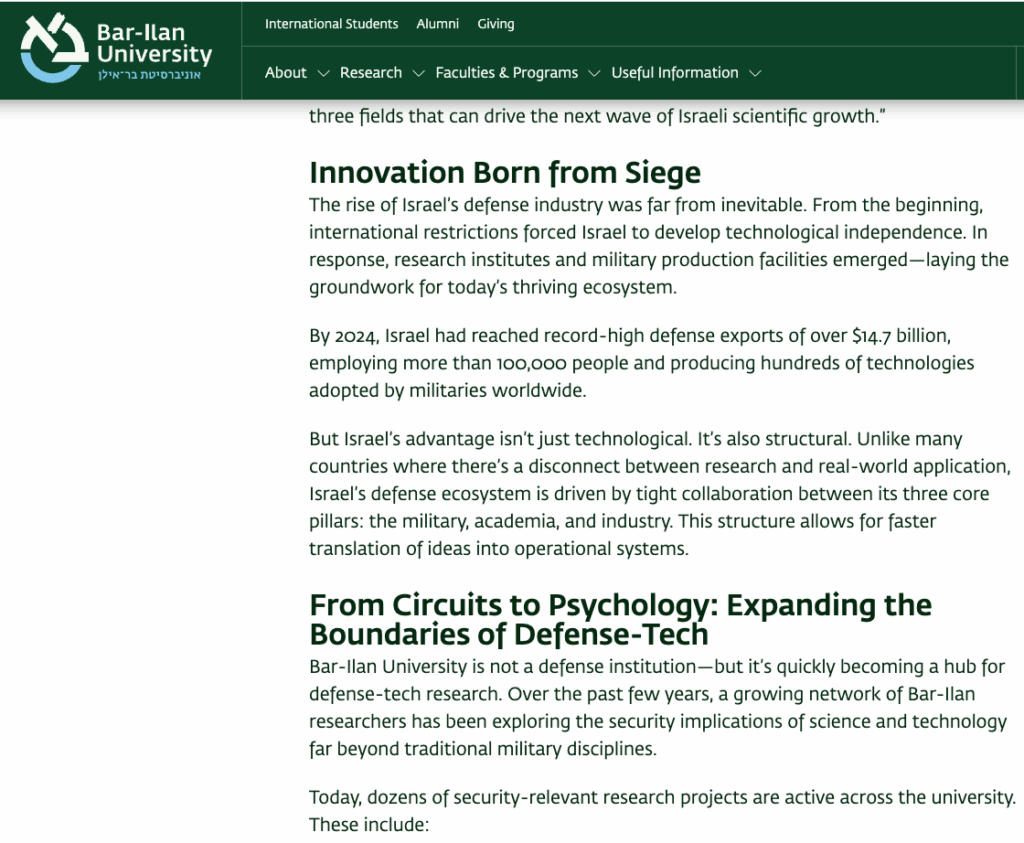Statement “Refusal on grounds of conscience. For human rights and compliance with international law,” https://uppsaladeclaration.se/germany/.
While the systematic and targeted starvation of the population in Gaza, with Western and especially German support, is making the genocide of the Palestinians an undeniable fact for more and more people, the question of a boycott of Israel is still taboo, especially in Germany. The so-called BDS movement, co-founded by the Palestinian Campaign for the Academic and Cultural Boycott of Israel (PACBI), was launched in 2004 in response to the failure of Oslo and the question of what nonviolent options for action remained against occupation and disenfranchisement. In Germany, it is indiscriminately considered antisemitic and partly watched by the Office for the Protection of the Constitution as a “suspected extremist case.” But now even the German government can no longer avoid dealing with sanctions and the suspension of cooperation in certain areas. And an increasing number of international scientists are signing letters calling on their governments and employers to stop ignoring the consequences of the situation in Gaza for scientific work – most prominently the letter from more than 1,000 physicists and scientists to the leadership of CERN.
In early summer, Swedish scientists, and scientists working in Sweden, published the so-called Uppsala Declaration, in which they commit themselves, on grounds of conscience, to no longer cooperate with Israeli institutions that have made themselves complicit in illegal occupation, apartheid, genocide, and other crimes under international law. This declaration has well over 2,000 signatures.
The German version has now been published on the same website and is identical to the Swedish version in form and many of its formulations. It explains the decision to boycott Israeli institutions in great detail, citing overwhelming evidence of Israeli universities’ involvement in crimes, and formulates the same principles:
“1. We will not support cooperation with the State of Israel or with its institutions that bear responsibility.
2. We will not promote or publicly support institutionalized exchange with Israeli institutions that bear responsibility.
3. We will not participate in activities organized and/or co-organized by the State of Israel or its complicit institutions.”
In addition, it also addresses the situation in Germany, citing examples of how German universities are disregarding their obligation to comply with international law, institutional links, and how existing cooperation is even to be expanded. And it clarifies at the end: “We explicitly do not call for severing relations with individual Israeli academics. Rather, we firmly reject cooperation with Israeli institutions involved in illegal occupation, apartheid, genocide, and other violations of international law on grounds of conscience.”
I myself hesitated for a while before signing the statement: firstly, because I do not wish to cooperate with non-Israeli institutions that are involved in violations of international law, either, and would prefer to adopt a general demand for universities to commit themselves to human rights. Like the Human Rights Policy of Ghent University in the Netherlands: “In a nutshell: Ghent University does not cooperate with organizations involved in serious or systematic human rights violations, nor does it want projects to lead directly or indirectly to human rights violations.” Secondly, I can imagine ethical dilemmas in which it is unavoidable to enter into undesirable cooperation. However, my main concern at this point is to put pressure on German institutions, the German government, and the German public to immediately cease all military and police cooperation with a state led by right-wing extremists, and to save Palestinian lives and the lives of the hostages. That is why I am signing this letter.
↗ https://uppsaladeclaration.se/germany/.
PS: Bar-Ilan University’s website says it all:
